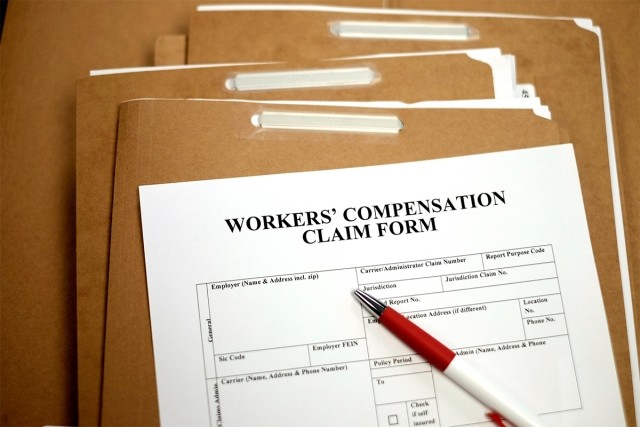Blog
Coronavirus in the Workplace: An Employer's Guide on the COVID-19 Outbreak & Workers’ Compensation Claims
This blog post can also be found on our Coronavirus Resource Center.
I’m not sure about you, but reading articles concerning the COVID-19 virus (Coronavirus) feels like trying to keep a large snowball from rolling down a mountain; everytime you think you’re in front of it, it changes directions and gets bigger. The purpose of this post is not to add more weight to the snowball, but to help shed some light on how the Coronavirus may be viewed in the realm of workers’ compensation, using examples of other known communicable diseases. We will also discuss the difference between diagnosed illness and exposure, and then provide some additional thoughts and resources for this uncertain phase of the Coronavirus epidemic.

Can Coronavirus be Covered by Workers' Compensation?
The answer to this depends on several factors.
First, it's important to understand that an occupational illness or injury is one that arises out of and in the course of employment. The "but for" test is one way to sort this out. When applying the “but for” test to a communicable disease such as the flu or the coronavirus, the question to ask is: “But for the employment, would the employee have contracted the communicable disease? If there are no special aspects of the employment, including the work conditions, environment, or job duties, to cause or contribute to the disease, then the illness was just as likely to have occurred in a different non-work setting. In most jurisdictions, if no special aspects of the employment apply, the communicable disease is not likely to be covered under workers' compensation. This is considered the doctrine of “increased risk,” i.e., compensability is barred if the conditions of employment pose no greater risk than what would be found in the general population.
States vary in their interpretation of the increased risk rule, so the next factor to consider is jursidiction. In the state of South Carolina, for example, their version of this rule is specifically defined in their SC Codes of Laws stating: “No disease shall be considered an occupational disease when it: is a contagious disease resulting from exposure to fellow employees or from a hazard to which the worker would have been equally exposed outside of their employment.” (SC Code 42-11-10 (B)(3)). However, for most states, the topic of coverage is not as obvious and will depend on the case-specific facts. Here are some examples of how California has recently viewed diseases within the California workers’ comp system:
- Measles outbreak: California Disneyland employees contracted the measles disease during a 2015 outbreak and were covered under workers’ compensation based on their large exposure to the general public, specifically unvaccinated foreign visitors in the Disneyland Park. Conversely, an administrative support employee working in an office who noticed symptoms while at work, who was later diagnosed with measles after going to the doctor, was denied workers' comp benefits because there was no link to employment.
- Valley Fever: In two recent cases, (Ranulfo Cruz v. Hall Management, and Tim Abernathy v. Harris Wolf California Almonds), the Workers’ Compensation Appeals Board (WCAB) concluded “that while applicants are not required to establish medical certainty, they are required to establish that the employment caused or contributed to their disease to a reasonable medical probability,” and “the employee’s risk of contracting the disease from the employment must be materially greater than the general public or more common at the place of employment than among the public.”
A person's industry, occupation, and workplace are relevant factors in whether their workers' compensation claims will be covered. For the coronavirus, it is impossible to determine how each state will find coverage for workers’ compensation claims related to the disease. But, if we use another recent epidemic example, SARS, it could be supposed that healthcare professionals will have a clear link between the special aspects of their employment and contracting the disease, considering 21% of those who contracted SARS were healthcare workers. We can also surmise that states like California could possibly find compensability for exposure to the disease for individuals who work in places with significant public contact, such as in the 2015 measles outbreak in Disneyland. One thing to remember, a claim is not a claim without a diagnosed disease, so it is important to know how to distinguish between exposure and a diagnosed disease.
The Difference Between Exposure and Diagnosed Disease
All employees are exposed to workplace hazards, injuries, and illnesses. However, this does not give rise to a claim without actual injury or illness. Coronavirus is no exception. An employer's obligation to report a claim is triggered when an employee reports a work-related injury or illness. If an employee believes they have been exposed to coronavirus, but has not yet been diagnosed, employers may encourage the employee to contact their primary care physician as opposed to being directed to an occupational medical clinic.
Once coronavirus is medically diagnosed, the employer should first take steps to notify the proper agencies and then, assuming there is some connection to the employment, decide whether a workers' compensation claim needs to be filed.
When to file:
- A physician indicates the disease is related to the employment; and/or
- The employer or the employee believe there may be some connection to the employment; and/or
- The employee makes a request to have a claim filed on their behalf.
Important reminder: As with any other workers’ compensation claim, filing a claim is not an admission of liability and EMPLOYERS ARE NOT THE ARBITERS OF COVERAGE. Determining the origin of exposure could be difficult and only the insurance company can make the legal determination as to whether a claim meets the threshold of compensability within each state’s jurisidication. If there is reasonable belief that an employee with diagnosed coronavirus may have been put at increased risk by their employment, an employer should offer medical care and the option to file a workers’ compensation claim. Additionally, if an employer feels there is no direct link between the alleged illness and the employment, but the employee requests to have a claim filed on their behalf, the employer should file the claim and allow the insurance carrier to make the compensability determination.
Finding Up-to-Date Information on Coronavirus for Employers
With additional countries and US states experiencing coronavirus cases, information coming from the CDC and The World Health Organization has been changing regularly. Currently, the CDC has issued travel notices for Italy, Iran, South Korea, and China. This travel restriction list includes the current list of travel notices on the CDC site and could change at any time.
Personal prevention methods are similar to those for most respiratory viruses. The full CDC listing of prevention guidelines includes common practices such as frequent and thorough hand washing, avoiding close contact with those who are sick, staying home if you are sick, and avoiding touching your eyes, nose, and mouth.
Employers are advised to place hand sanitizer dispensers and sanitizing wipes in the workplace, to educate their employees on hand-washing technique, and to increase cleaning schedules for frequently touched surfaces, such as workstations, countertops, and doorknobs. The use of masks is not currently recommended by the CDC for those who are not sick. They’ve also included a guide for how to develop an infectious disease outbreak response plan.
Other important thoughts for employers:
- Make decisions and plans now. Do not wait. What factors would cause you to shut down your business and who will make the decision? What might cause you to enact a work-from-home mandate? When will you decide that all employees must refrain from travel? What action items must occur and what resources must be available to accomplish the afore-mentioned items
- The local health department can be an essential contact for your company. They have the authority to control all epidemiological responses, including quarantines or other actions that may affect your business. If you have an employee who has been exposed and/or tests positive at any point, you may need to contact the health department for guidance, especially if a healthcare provider has not done so yet.
- Depending on your local situation and where your visitors generally travel from, consider conducting only essential face-to-face meetings and limiting situations where your employees are attending large gatherings.
- OSHA has issued guidance on log recordkeeping that differs from how the common cold or the seasonal flu is recorded. If an employee is exposed while performing their work duties and subsequently becomes ill, the case is recordable.
- Know your enemy. How does this virus spread? What are the best methods to prevent transmission? Visit the CDC and WHO websites to stay on top of these topics. More information comes out every day. The CDC and WHO are releasing audio updates, website updates, and additional tools frequently as they learn more and more about the way this virus behaves.
- Involve Human Resources and counsel when making decisions about private information and attendance policies.
For additional information from the CDC and OSHA, see the links below.
- CDC main coronavirus information page
- OSHA information related to the corona virus
- Information for travelers
- Cases in the US
- Cases Globally
For more information about workers' compensation claims and dealing with the coronavirus in your workplace, contact your Woodruff Sawyer account team.
Learn about workers' comp for remote employees as part of your property & casualty insurance program.
Authors
Table of Contents















